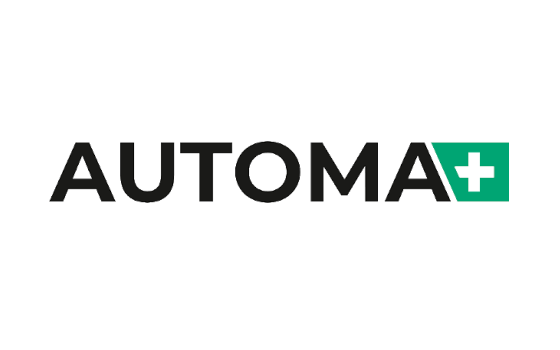 26 - 27 September 2022, Zurich, Switzerland.
26 - 27 September 2022, Zurich, Switzerland.Social aspects of digitalization are presented at the Healthcare Automation and Digitalization Congress 2022 (AUTOMA+ Healthcare 2022). The Congress takes place in Zurich, Switzerland, and gathers hospitals, healthcare providers, pharmaceutical companies, and governmental bodies and institutions to share solutions for personalized medicine developments and digital healthcare transformation.
Digital transformation in the healthcare industry is not only the integration of digital technology into all areas of the healthcare industry. It's also a cultural change which sometimes implies walking away from long-standing business processes that companies developed in favor of relatively new practices that are still being defined. Staff qualification and mindset transformation are one of the topics of AUTOMA+ Healthcare sessions about the social aspects of digitalization.
Digital change is both a technical and an adaptive change, featuring unpredictable and complex interactions between the people and technologies involved. It means learning how to think, act and thrive in a digital world that is sustainable over time. There are several digital solutions that make medical staff training more accessible and fast, such as virtual reality simulators, AI driven apps and software solutions, game-based learning and E-learning applications. For example, Megan Morys-Carter, Director of The Hill Oxford at Oxford University Hospitals NHS Foundation Trust, is going to present the Digital Innovation Ambassadors programme about changing the culture of an organisation, digital skills development and a 'digital by default' mindset for getting work done in a healthcare setting.
Digital transformation demands a "digital" mindset. A digital mindset is not the ability to use technology. Having a digital mindset is being able to incorporate technology into daily roles and extracting value from it. Within AUTOMA+ Healthcare 2022 Luca Caruso, Digital Health Manager at Ferrer, is going to talk about the talent in Digital Health organizations. Anna Erat, Medical Director at Hirslanden Klinik, is also among the speakers and presents the topic "Why the clinical and hospital industry is lagging behind in digitalization?".
Speakers of AUTOMA+ Healthcare are also focusing on gender equality, and healthcare workers and patient interaction issues. Dr. Anke Diehl, Chief Transformation Officer at University Medicine Essen, is going to present her topic "Women in digital health: the hidden potential?". Thanks to the easily accessible apps, comparative affordability and ability to convey health information in a digestible format, Femtech digital health solutions empower women with low incomes and women in developing economies, where health services are underdeveloped and healthcare is not affordable to everyone.
It is essential to have a complete view of the challenges healthcare workers face in the relationship with patients. Healthcare providers have more access to patient data and applications which can help healthcare workers to become more involved in the conditions of their patients and have more effective communication. Through the use of AI algorithms, doctors can collect valuable data and save lives. Telehealth & telemedicine: doctor-patient consultations have become so accessible that people can now do it from different parts of the world via a cellphone or a laptop, with a good internet connection.
All the topics listed above and many other topics related to the social aspects of digitalization are covered at AUTOMA+ Healthcare 2022 at the Leaders Talk where leading representatives of the healthcare market share their experience.
Request the full list of participants and the business program of the AUTOMA+ Healthcare Congress: https://bit.ly/3sBTu6N
About AUTOMA+
AUTOMA+ is an annual closed-door Healthcare networking congress which gathers innovators in the healthcare industry with the main goal to contribute to further development of ongoing digital health trends. Among topics raised are sustainability, patient centricity, data management, security and privacy, virtual care, AI assistants and many others.During 2 days of intensive networking participants get direct access to the whole value chain of the industry. This year AUTOMA+ is gathering industry leaders from hospitals & healthcare providers, pharmaceutical companies, governmental bodies and institutions together with medical device manufacturers, service companies and start-ups to discuss innovative solutions and business practises and share the lessons learned.